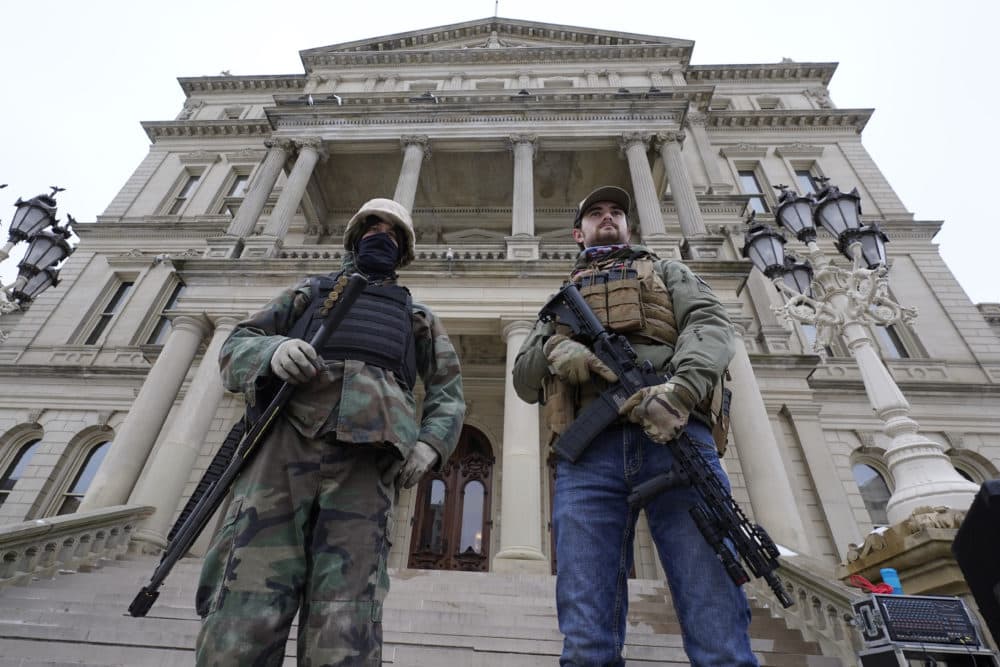Advertisement
Michigan Banned Open Carry Of Guns In State Capitol. One State Senator Says It's Not Enough
Resume
Members of the public can no longer openly carry guns in the Michigan State Capitol following a rule change adopted Monday by the commission that manages the building.
The Michigan State Capitol Commission voted to ban open carry in common areas of the building after the deadly riot on the U.S. Capitol building last week. Many lawmakers say the insurrection was inspired by armed protesters who swarmed Michigan’s Capitol last April and extremists who plotted to kidnap the state’s governor.
Michigan’s new policy means only law enforcement and people who hold a concealed-weapons permit may carry guns inside the state Capitol. The commission says the state does not have the money to implement a stricter ban, which would require installing metal detectors at public entrances to the Capitol building.
The decision is being widely criticized by lawmakers, including State Sen. Dayna Polehanki, who say the rules change does not go far enough. She argues that the Capitol Commission has the legal authority to ban all firearms inside the building.
“It's a half measure and it could get someone killed,” Polehanki says. “What it does is it creates a false sense of security, an illusion that visitors are safe from gun violence in our Capitol, because we still welcome guns as long as you can't see them.”
Polehanki says the attack on the U.S. Capitol building last week was the “logical extension” of what happened at the Michigan State House last spring. People armed with long guns stood above Polehanki and other lawmakers in the Senate gallery to protest the state’s coronavirus restrictions.
Now, the FBI says armed extremists are planning to march on all 50 state capitols leading up to Inauguration Day next week.
“I take the lead from Attorney General Dana Nessel, who says, no, our Capitol is not safe,” Polehanki says. “The insurrectionists won the day at the U.S. Capitol on Jan. 6. The big difference between that and Michigan is that guns are welcome in our Capitol, and that scares me.”
The playbook for what happened in Washington was written in Michigan, Polehanki says. She says she doesn’t feel safe.
“I'm not ashamed to admit I'm afraid,” she says. “I spent the weekend at my local military supply store and I got some supplies — a helmet, a gas mask, some mace — that's going to go underneath my desk on the Senate floor along with my bulletproof vest. It's a scary time.”
Polehanki worked as a teacher before becoming a member of the Michigan Senate in 2019. She used to take her students on trips to the State House, but now she says she wouldn’t tell parents it’s safe to bring kids inside the building.
Despite legitimate fears for her safety, Polehanki says she is not rethinking her decision to get involved in politics.
“I have 269,000 constituents who rely on me to go to the Capitol and to vote and to speak on their behalf, and I won't be deterred,” she says. “It may deter others, but that's a crying shame.”
Alexander Tuerk produced and edited this interview for broadcast with Tinku Ray. Samantha Raphelson adapted it for the web.
This segment aired on January 12, 2021.

